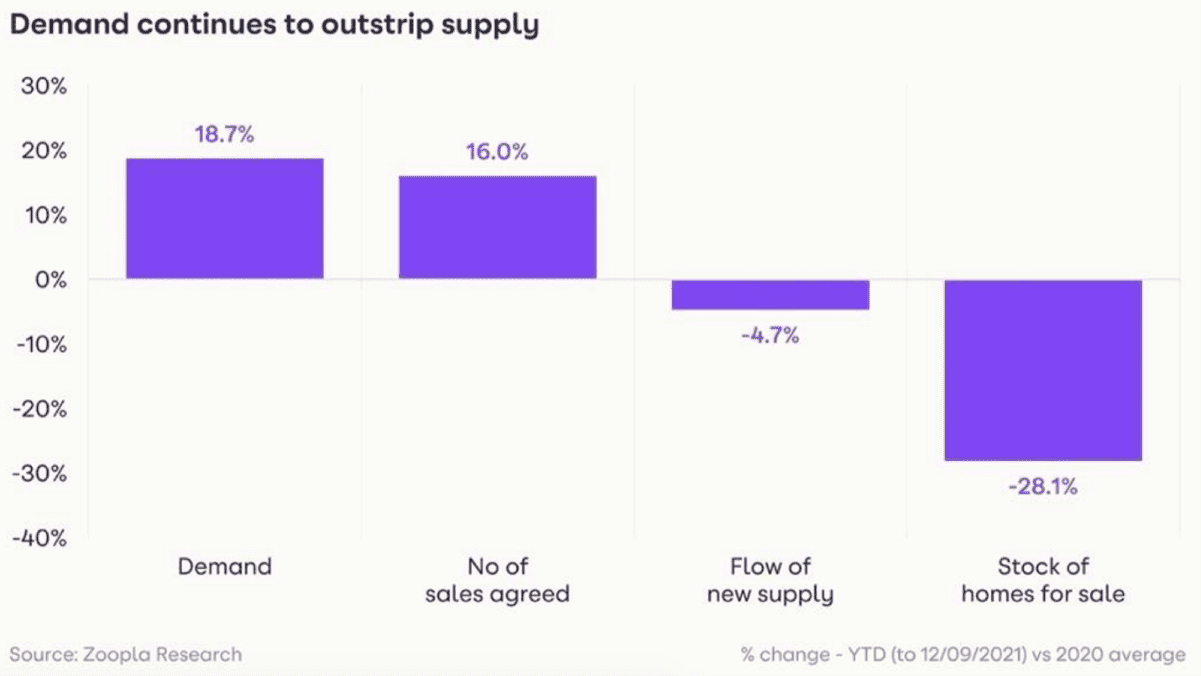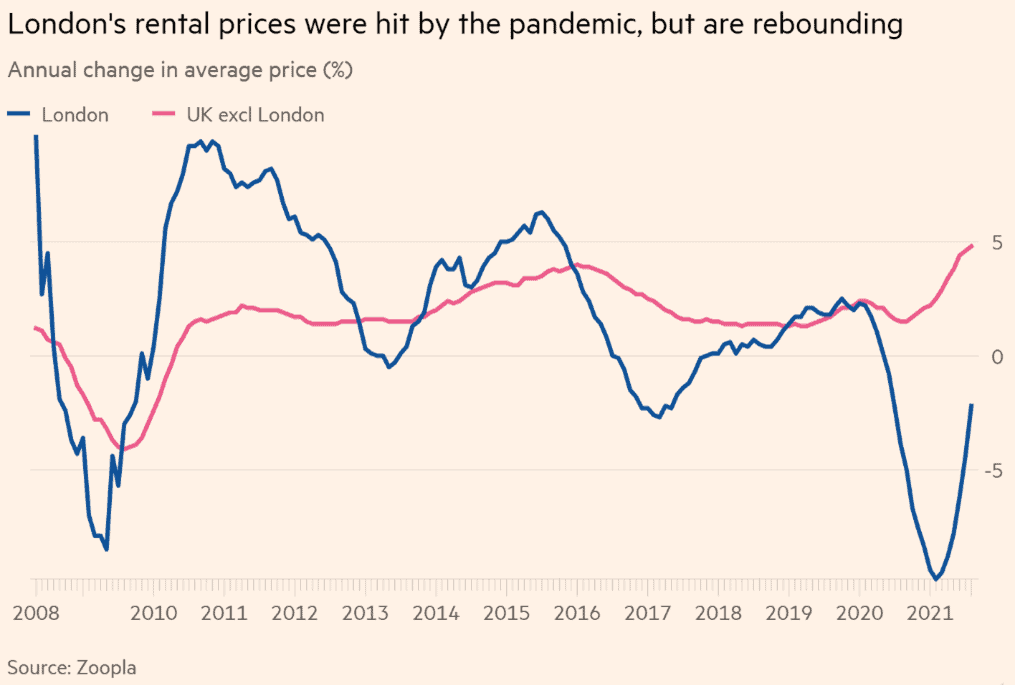You probably heard that rent prices in London dropped by as much as 28% in some postcodes earlier this year. The government-enacted coronavirus restrictions were a large factor in this. Still, we were all astonished by the idea of a Covid rental exodus, especially when a series of surveys came out confirming that many city dwellers have either moved out or are planning to do so in the near future.
What stood out the most during this time of Covid-induced turbulence was that many of the people who were viewing London as less desirable to live in were those aged between 23-29, according to data from Spareroom. The flat-sharing service found that almost a quarter of 23-29 year olds left their rented accommodation during the height of the pandemic to save money after losing their jobs, with most moving back into their family homes. The survey found that a third of 23-29 year olds now live with their parents compared with 18% of thirty-somethings.
What’s been pushing city renters out of the capital and will they ever return? New data from Spareroom tells us just that.
Shockingly, ‘room wanted’ ads have outnumbered ads for ‘rooms available’ on SpareRoom for only the third time in six years. The last time this happened was in September 2019 and before that, August 2015. Out of the UK’s 50 largest towns and cities, London has seen the biggest increase in demand vs supply, with buyer demand up 14% in August 2021. This translates into a 25% rise in demand for houses across London and a 6% rise in demand for flats.

Source: Zoopla
The imbalance is the most acute in London than other parts of the UK as enquiries to rent are up 165% this autumn on the previous year. LonRes has 2,800 properties registered for rent versus 13,000 this time last year.
A poll by Spareroom also found that out of 6,206 respondents, more than nine in ten people (96%) who are currently looking to move to London are struggling to find available rooms.
Indeed, London is coming back to life. Demand is unusually high because people are moving back out of their parents’ houses and overseas students (as well as students in general) are starting to return to the city. If you want further proof of this, Transport for London (TfL) reported that almost 4 million people travelled on the Underground during the last week of September. Compared with pre-pandemic figures for September 9 2019, travel was up 45% on the Tube and 64% on the buses amid the end of the summer holiday period and the return of schools.
In fact, the number of Tube and bus journeys has increased every week since coronavirus restrictions were lifted in July; on Thursday September 30, 2.6 million Tube journeys were made, the highest weekday total since the pandemic began.
With the widespread return to office working, the rental market looks back to apparent normality or even tighter. Gone are the times when opportunistic renters could pick up bargains with the massive drops in private rent. Now strong rental growth, fuelled by increased demand and limited supply has put a stop to the softening of rents in London. According to the property portal Zoopla, demand for London rental properties in August was up almost 80% on the average for 2017-19 and Rightmove reports that the cost of renting a home was 3.6% higher this summer than the previous year.

Source: Zoopla
It’s not all doom and gloom though. While demand remains higher than typical for this time of year, Zoopla predicts that this could start to unwind by the end of the year. Also, other parts of the UK are being hit with high rental prices too, for example Liverpool’s average prices are up +9.8% in the 12 months to September, while Manchester and Sheffield have registered high levels of growth, at +8.1% and +7.6% respectively.
If you’re a soon-to-be city renter or already living in London and searching for accommodation that’s more suited to your budget, remember to balance your wants and needs. For example, you might dream of having a great window view overlooking the River Thames, but what you really need is a place with a washing machine. Think realistically and reasonably, and also consider rent negotiation with a landlord or living with multiple housemates to save money.
But above all else, do your research before moving to London to ensure you find the best priced rentals. As offices reopen and global travel resumes, supply is sparse at the moment so set up as many viewings as possible and do your due diligence.







